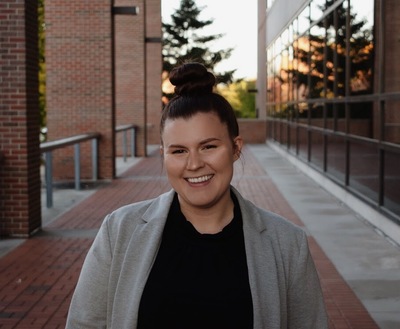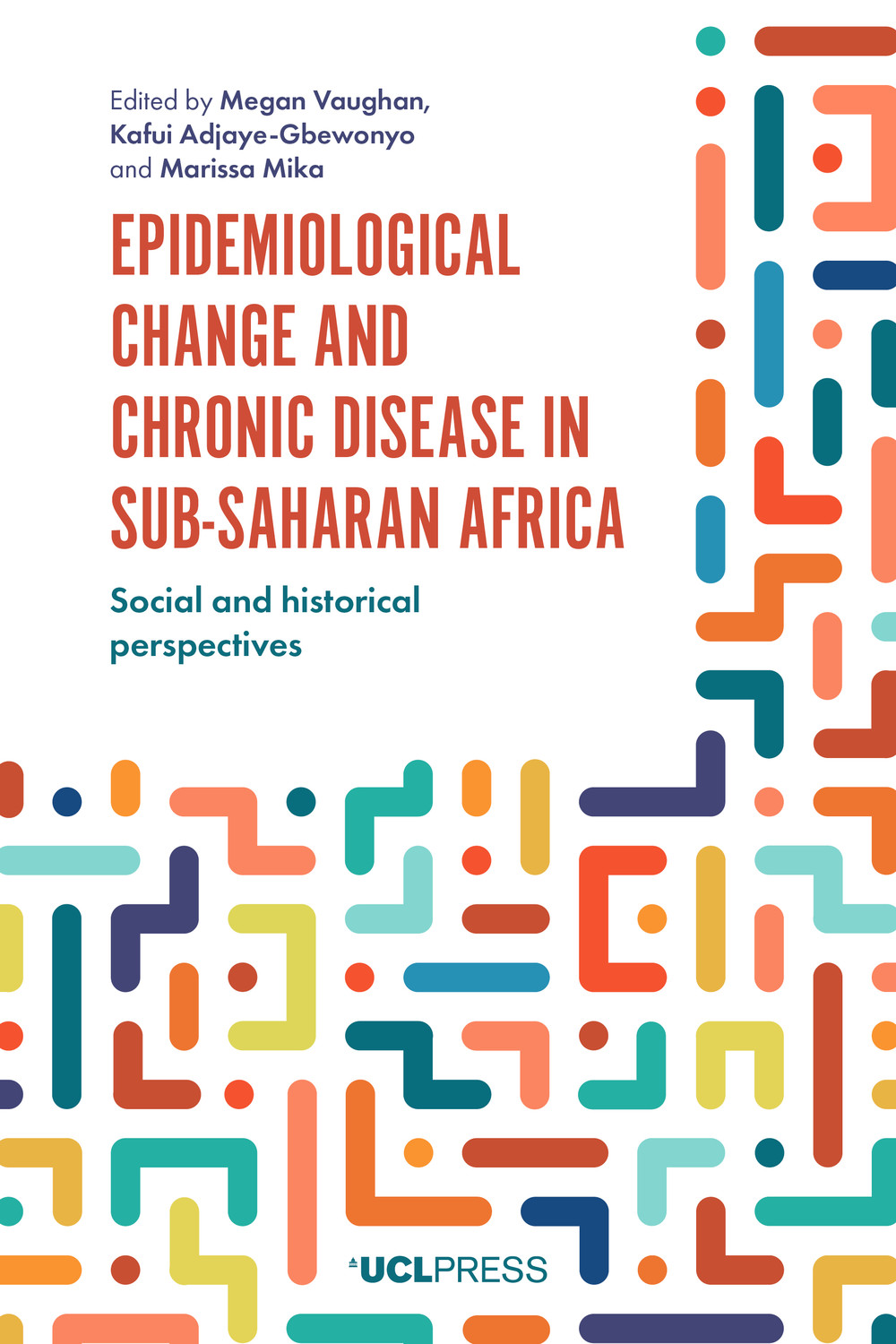
Madeleine Futter
(Alliance for African Partnerships)
Communications Intern
International Studies and Programs
Climate Change
Democracy
Discrimination
Economics
Education Abroad
Equity
Gender
Governance
Politics
Race & Ethnicity
Sustainability
DesignThinkers Group Follow Up
DesignThinkers Group USA (DTG) recently followed up on the beginning of the AAP initiative at MSU. In 2016, DTG designed a three-day co-creation workshop which helped finalize the creation of the AAP. More recently, DTG conducted two focus group discussions in Nov 2020 to better understand the AAP’s impact since its creation.
To read about DTG’s key findings and challenges for the AAP, read the link below.
https://www.designthinkersgroup.us/why-co-creation-is-important-an-alliance-for-african-partnership-case-study/.
By:
Madeleine Futter
Monday, Aug 16, 2021
OTHER
No Preview Available
Leave a comment
Epidemiological Change and Chronic Disease in Sub-Saharan Africa: Social and historical perspectives
UCL Press is pleased to announce a new open access book that is likely to be of interest to list subscribers: Epidemiological Change and Chronic Disease in Sub-Saharan Africa, edited by Megan Vaughan, Kafui Adjaye-Gbewonyo, and Marissa Mika.
Epidemiological Change and Chronic Disease in Sub-Saharan Africa offers new and critical perspectives on the causes and consequences of recent epidemiological changes in sub-Saharan Africa, particularly on the increasing incidence of so-called ‘non-communicable’ and chronic conditions. Historians, social anthropologists, public health experts and social epidemiologists present important insights from a number of African perspectives and locations to present an incisive critique of ‘epidemiological transition’ theory and suggest alternative understandings of the epidemiological change on the continent.
Arranged in three parts, ‘Temporalities: Beyond Transition’, ‘Numbers and Categories’ and ‘Local Biologies and Knowledge Systems’, the chapters cover a broad range of subjects and themes, including the trajectory of maternal mortality in East Africa, the African smoking epidemic, the history of sugar consumption in South Africa, causality between infectious and non-communicable diseases in Ghana and Belize, the complex relationships between adult hypertension and paediatric HIV in Botswana, and stories of cancer patients and their families as they pursue treatment and care in Kenya.
In all, the volume provides insights drawn from historical perspectives and from the African social and clinical experience to offer new perspectives on the changing epidemiology of sub-Saharan Africa that go beyond theories of ‘transition’. It will be of value to students and researchers in Global Health, Medical Anthropology and Public Health, and to readers with an interest in African Studies.
Download free: https://bit.ly/37ISfIy
**********************************
uclpress.co.uk | @uclpress
By:
Madeleine Futter
Monday, Aug 16, 2021
HEALTH AND NUTRITION

No Preview Available
Leave a comment
Africa Past and Present Podcast: African Sports Studies (ep 30)
Check out this podcast from Matrix: the Center for Digital Humanities and Social Sciences and the Department of Hisotry at MSU!
"In this episode, Dr. Gerard Akindes discusses his experience playing and coaching basketball in West Africa and Europe, and evaluates the prospects of the new Basketball Africa League. He considers the role of "electronic colonialism" in a changing sport media landscape and then reflects on his work advancing African scholarship through research publications and through Sports Africa, a coordinate organization of the U.S. African Studies Association that he co-founded in 2004."
Here is the link: https://urldefense.com/v3/__http:/afripod.aodl.org__;!!HXCxUKc!hObxORTy0n-bBMe5kVD4_jKz5Dofcp-uVBmltNqs7GdwfilTm7c19FREo-3gvmKNhw$
This podcast can also be found on Apple podcast and similar outlets.
By:
Madeleine Futter
Monday, Aug 16, 2021
CULTURE AND SOCIETY
No Preview Available
Leave a comment
Professional Fellow Program Finalizes Participant Projects
The AAP is pleased to conclude another successful cohort from the US Department of State Professional Fellows program. With help from our partners at Kyambogo University in Uganda, the University of Nairobi in Kenya, and Sokoine University of Agriculture in Tanzania, we were able to identify and support the 12 East African fellows.
This year provided unique challenges due to COVID-19 travel restrictions. We celebrate the challenges and successful of the fellows and continue to support their upcoming projects. To hear from the fellows, coordinators, and program manager about the fourth cohort, please check out the link below.
https://aap.isp.msu.edu/news_article/22867
By:
Madeleine Futter
Monday, Aug 16, 2021
AGRI-FOOD SYSTEMS
+1
No Preview Available
Leave a comment
Congratulations to Professional Fellows
Congratulations to our Fellows for their project presentations at our Dissemination Workshop this morning! This is AAP’s fourth cohort from the US Department of State and Bureau of Education and Cultural Affairs’ (ECA) Professional Fellows Program (PFP). MSU participates in PFP in partnership with Kyambogo University, University of Nairobi, and Sokoine University of Agriculture.
At our workshop, each of our 12 East African Fellows virtually presented their projects to an international audience. Projects are held within an array of agribusinesses such as coffee, poultry, and honey production. Additionally, we thank Dr. Rob Glew, Associate Dean for Academic Programs at MSU International Studies and Programs, for opening remarks and closing remarks from Dr. Wynne Wright, Associate Professor at MSU Department of Community Sustainability and Department of Sociology.
We acknowledge our team for providing significant support for the Fellows and program. Both MSU and outside resources were essential to conducting a successful PFP, while being completely virtual. We also thank our mentors who guided each Fellow throughout the program and whose efforts are invaluable.
For those who could not attend, a recording will be posted on our website soon! Keep in touch with AAP in the next few weeks for more information on PFP and Fellows!
By:
Madeleine Futter
Monday, Aug 16, 2021
AGRI-FOOD SYSTEMS
Leave a comment
Collaboration and Connection with Malawian Policy Institutue
As AAP Senior Advisor, MSU faculty and lead PI at the MwAPATA Institute, Dr. Thomas Jayne states “local institutes working on the ground can produce insights that are valuable to international researchers. There are important benefits for MSU to be engaged in these processes.”
Highlighting this ongoing collaboration between MSU and African institutions, a recently published article by the MSU College of Agriculture & Natural Resources (CANR) focuses on the MwAPATA Institute. This agricultural policy research think tank provides well-needed Malawian contributions to policy outreach, research, coordination and capacity building. AAP celebrates our Senior Advisor, Prof. Thomas Jayne, and Africa Officer Director, Prof. Richard Mkandawire, for their significant efforts within the MwAPATA Institute!
To read more about the MwAPATA Institute and its AAP contributors follow this link: https://www.canr.msu.edu/news/msu-economists-develop-new-agricultural-policy-research-institute-in-malawi?sc_camp=C5792E5D342B45C688982386A82A7829&utm_source=msudaily-email&utm_medium=email&utm_campaign=standard-promo&utm_content=text2
More information MwAPATA’s website can be found here: https://www.mwapata.mw/about.
By:
Madeleine Futter
Monday, Aug 16, 2021
AGRI-FOOD SYSTEMS
No Preview Available

Leave a comment